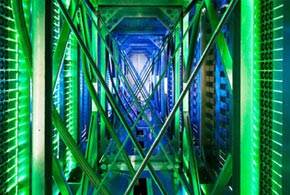Michael Dell says scale is necessary in a fast-changing IT world, while Meg Whitman says being smaller and more nimble will win out.
The diametrically opposed strategies that Dell Technologies and Hewlett Packard Enterprise are taking to navigate their way through a rapidly changing tech industry were on full display the same day last week, giving executives for both the chance to make their cases.
And make their cases they did, with both Dell CEO Michael Dell and his HPE counterpart, Meg Whitman, not only arguing why they made the moves they did, but also why their strategy put their company in a better position to manage the industry’s shift to the cloud and the broad range of emerging technologies, including the fast-growing internet of things (IoT), the proliferation of mobile devices, big data analytics, artificial intelligence, virtual reality and software-defined everything.
Michael Dell is betting more than $60 billion that bigger is better. The acquisition of EMC, 11 months in the making, creates a huge $74 billion tech vendor that has reach into every part of the enterprise IT segment, from the PC to the data center and into the cloud. It has multiple companies—including VMware, Pivotal, SecureWorks, RSA and Virtustream—140,000 employees (though job cuts are coming) in 180 countries.
During a conference call last week with journalists and analysts, the CEO reiterated his belief that when talking about being the top supplier of enterprise IT solutions, scale matters. With Dell, customers get a one-stop shopping site for all their technology needs, from PCs and servers to storage devices, networking, virtualization, cloud offerings and enterprise software. The company offers converged, hyperconverged and software-defined infrastructure, hybrid cloud technologies and services.
He also noted that a key advantage for Dell is that it is a private company—though VMware and SecureWorks are public—and that enables it to think differently about the future than a public company like HPE. Public companies are under constant scrutiny by financial analysts and shareholders, and that forces them to think more short term. They have to report their earnings every three months, and must be much more worried about revenue and profits.
For Dell, as a private company, the thinking is different.
“We don’t have to cater to short-term thinking,” Michael Dell said. “We can think in decades.”
In an interview with Fortune, he said that at Dell, “we want to innovate on behalf of customers, and that is a challenge for many public companies—particularly if they don’t have the right portfolio. What’s unique about Dell, EMC, Virtustream, Pivotal, Secureworks, RSA, etc., is we’ll pull together the best capabilities and we’re private so we can do that on a longer-term time horizon. Other companies are out there selling off pieces and are in some form of distress one way or another.”
Throughout the conference call, he was cautious about naming HPE or IBM in particular—VMware is a partner of both. However, he did say that other vendors “are reacting to what we have done and that’s informing a lot of their strategies.”
For her part, Whitman didn’t hold back against either Dell or Cisco Systems. The same day that the Dell-EMC deal closed, HPE announced it was spinning out its software company and merging it with Micro Focus in a deal worth $8.8 billion. The move created a much larger Micro Focus in which HPE now has a 50.1 percent stake, and continued Whitman’s remaking of the company she inherited when she became CEO of Hewlett-Packard in 2011. In November 2015, the company split in two, creating HPE for selling enterprise IT solutions and services and HP Inc., which focuses on PCs and printers.







